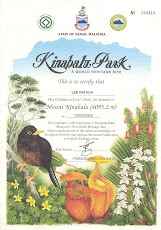
Man’s youth is a wonderful thing: it is so full of anguish and of magic and he never comes to know it as it is, until it has gone from him forever. It is the thing he cannot hear to lose, it is the thing whose passing he watches with infinite sorrow and regret, it is the thing whose loss he must lament forever, and it is the thing whose loss he really welcomes with a sad and secret joy, the thing he would never willingly relive again, could it be restored to him by any magic.
Why is this? The reason is that the strange and bitter miracle of life is nowhere else so evident as in our youth. And what is the essence of that strange and bitter miracle of life which we feel so poignant, so unutterable, with such a bitter pain and joy, when we are young? It is this: that being rich, we are so poor; that being mighty, we can yet have nothing; that seeing, breathing, smelling, tasting all around us the impossible wealth and glory of this earth, feeling with an intolerable certitude that the whole structure of the enchanted life – the most fortunate, wealthy, good, and happy life that any man has ever known – is ours – is ours at once, immediately and forever, the moment that we choose to take a step, or stretch a hand, or say a word – we yet know that we can really keep, hold, take and possess forever – nothing. All passes; nothing lasts: the moment that we put our hand upon it, it melts away like smoke, is gone forever, and the snake is eating at our heart again; we see then what we are and what our lives must come to.
A young man is so strong, so mad, so certain and so lost. He has everything and he is able to use nothing. He hurls the great shoulder of his strength forever against phantasmal barriers, he is a wave whose power explodes in lost mid-oceans under timeless skies, he reaches out to grip a fume of painted smoke, and he wants all, feels the thirst and power for everything and finally gets nothing. In the end, he is destroyed by his own strength, devoured by his own hunger, impoverished by his own wealth. Thoughtless of money or the accumulation of material possessions, he is none the less defeated in the end by his own greed a greed that makes the avarice of King Midas seem paltry by comparison.
And that is the reason why, when youth is gone, every man will look back upon that period of his life with infinite sorrow and regret. It is the bitter sorrow and regret of man who knows that once he had a great talent and wasted it, of a man who knows that once he had a great treasure and got nothing from it, of a man who knows that he had strength enough for everything and never used it.
Why is this? The reason is that the strange and bitter miracle of life is nowhere else so evident as in our youth. And what is the essence of that strange and bitter miracle of life which we feel so poignant, so unutterable, with such a bitter pain and joy, when we are young? It is this: that being rich, we are so poor; that being mighty, we can yet have nothing; that seeing, breathing, smelling, tasting all around us the impossible wealth and glory of this earth, feeling with an intolerable certitude that the whole structure of the enchanted life – the most fortunate, wealthy, good, and happy life that any man has ever known – is ours – is ours at once, immediately and forever, the moment that we choose to take a step, or stretch a hand, or say a word – we yet know that we can really keep, hold, take and possess forever – nothing. All passes; nothing lasts: the moment that we put our hand upon it, it melts away like smoke, is gone forever, and the snake is eating at our heart again; we see then what we are and what our lives must come to.
A young man is so strong, so mad, so certain and so lost. He has everything and he is able to use nothing. He hurls the great shoulder of his strength forever against phantasmal barriers, he is a wave whose power explodes in lost mid-oceans under timeless skies, he reaches out to grip a fume of painted smoke, and he wants all, feels the thirst and power for everything and finally gets nothing. In the end, he is destroyed by his own strength, devoured by his own hunger, impoverished by his own wealth. Thoughtless of money or the accumulation of material possessions, he is none the less defeated in the end by his own greed a greed that makes the avarice of King Midas seem paltry by comparison.
And that is the reason why, when youth is gone, every man will look back upon that period of his life with infinite sorrow and regret. It is the bitter sorrow and regret of man who knows that once he had a great talent and wasted it, of a man who knows that once he had a great treasure and got nothing from it, of a man who knows that he had strength enough for everything and never used it.













.jpg)
.jpg)

